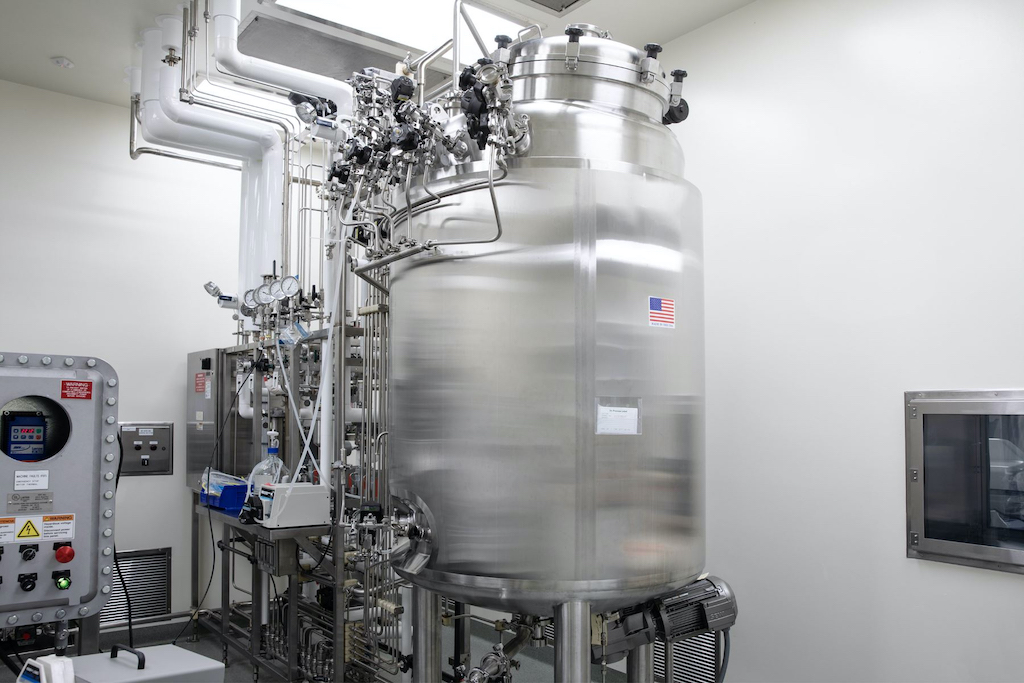6 Mins Read
Eat Just, the pioneering food tech behind the famous plant-based JUST Egg, has just announced that its cultured chicken has been approved by regulatory authorities in Singapore as an ingredient in chicken bites. It represents the world’s first allowance of cell-based meat for safe human consumption and a milestone for the alternative protein industry to bring sustainable and healthier solutions to market.
Announced today (December 2), Eat Just says that after a “rigorous consultation and review process,” the company’s cultured chicken has been approved in Singapore. Regulators in the city-state have allowed the cultured chicken product to be sold as an ingredient in chicken bites, paving the way for the food tech to continue extending its other cell-based chicken formats in the future. The bites will be made up of 70% cultured chicken, with the remainder made up of plant protein.
The entire regulatory process spanned many months, with Eat Just’s team providing extensive documents and characterisation of its antibiotic-free cultured chicken products and demonstrating the manufacturing operations behind it in 1,200-litre bioreactors.
“Safety and quality validations demonstrated that harvested cultured chicken met the standards of poultry meat, with extremely low and significantly cleaner microbiological content than conventional chicken,” said the company in a press release. Eat Just added that the Singapore Food Agency’s (SFA) analysis also found that Eat Just’s cultured chicken boasted a “high protein content, diversified amino acid composition, high relative content in healthy monounsaturated fats and is a rich source of minerals”.

The news marks a huge milestone, not only for Eat Just to win the race as the world’s first food tech to gain regulatory approval for the commercial sale of cultured meat, but for the wider cell-based meat industry to move towards the industrialisation, production and bringing its alternative proteins to market.
Singapore has long been a leader in innovation of all kinds, from information technology to biologics to now leading the world in building a healthier, safer food system. I’m sure that our regulatory approval for cultured meat will be the first of many in Singapore and in countries around the globe.
Josh Tetrick, Co-Founder & CEO of Eat Just
For industry watchers, for Singapore to become the world’s first to approve cultured meat builds on the country’s already strong reputation as a food tech innovation hub with a supportive government keen to push forward sustainable protein production. Earlier this year, a Green Queen Media report highlighted Singapore as a key Asian city poised to host the world’s first commercially available cultivated food, citing funding and keen government interest as key factors.
“Singapore has long been a leader in innovation of all kinds, from information technology to biologics to now leading the world in building a healthier, safer food system. I’m sure that our regulatory approval for cultured meat will be the first of many in Singapore and in countries around the globe,” said Josh Tetrick, co-founder and CEO of Eat Just.
Commenting on the landmark moment, Bruce Friedrich, executive director of alternative protein nonprofit the Good Food Institute (GFI) said: “A new space race for the future of food is underway. As nations race to divorce meat production from industrial animal agriculture, countries that delay their investment in this bright food future risk getting left behind.”

“The rest of the world should be following Singapore’s lead by funding alternative protein research and working with companies to ensure a rigorous and thorough path to regulatory approval and oversight,” Friedrich added.
Ira Van Eelen, daughter of Willem Van Eelen, a Dutch scientist who pioneered cell-based meat technology and whose technology JUST acquired via patent, told Green Queen: “This is a good day for food innovation. You need special people to get things going and from the day we originally met in 2017, I knew Josh was one of them.”
The rest of the world should be following Singapore’s lead by funding alternative protein research and working with companies to ensure a rigorous and thorough path to regulatory approval and oversight.
Bruce Friedrich, Executive Director of the Good Food Institute
Van Eeelen, who is an Eat JUST Board Advisory member, also payed homage to her father’s Asian roots: “I am happy that Singapore is doing this. Let’s not forget, my dad was born in Asia and in 2000 already he was invited to come to work in Singapore. But he felt he was too old at almost 80.”
Eat Just says that it will soon launch its new brand GOOD Meat, a small-scale commercial venture offering consumers “real, high-quality meat created directly from animal cells”. Partnering with local manufacturers in Singapore for production, the food tech’s cultured chicken under the GOOD Meat brand will first be sold to restaurants, ahead of becoming available directly to consumers in the city state.

The announcement comes on the heels of the San Francisco-based firm’s new partnership with a consortium led by investment management firm Proterra to build a new production facility in Singapore to meet the rising demand for plant-based alternatives across the region. While the site, which is Eat Just’s first Asia-based factory, will be dedicated to producing the company’s vegan egg product, the company at the time also revealed that it was in discussions with Proterra to focus on the commercialisation of cultured meat.
It followed comments made by Tetrick in a conference, where estimated that cell-based meats will be available to mass consumers within a timeline “north of 15 years”, in stark contrast to plant-based brand Impossible Foods founder Pat Brown’s pessimistic outlook that he doubled down on during a virtual conference attended by Green Queen.
With Singapore paving the way, it’s likely that more regulatory approval announcements from around the world will come in the near future. Other government agencies across the world are also looking to draw up regulatory guidelines for the burgeoning cell-based food industry.
This is not just about one product, it’s not even just about one country. This is a breakthrough that will have a rippling effect on the global cellular agriculture industry.
Elaine Siu, Managing Director of Good Food Institute Asia-Pacific

In July, Japan’s Agriculture, Forestry and Fisheries Ministry announced that it is now looking to establish new rules and regulations for meat alternative products developed using new food technologies such as cellular agriculture and plant-based proteins, which came soon after the Chinese national advisory body discussed cell-based meat development as a potential key to ensuring the future of China’s protein supply.
The United States Department of Agriculture (USDA) and the Food and Drug Administration (FDA), officials in the U.S. has also alluded to developments, saying in a joint webinar that they will be working together to launch the rule-making process for the labelling of cell-cultured products, though no firm timetable was set.
In a blog post published this morning, Elaine Siu, managing director of GFI Asia-Pacific (GFI APAC), said she believes that thanks to Eat Just’s breakthrough to bring the world’s first commercially available meat to plates, today marks the “the beginning of a new era.”
“This is not just about one product, it’s not even just about one country. This is a breakthrough that will have a rippling effect on the global cellular agriculture industry.”
Siu, who worked closely with the SFA as they set about establishing a framework for the cell-based industry, added that “it has been an honour to work alongside SFA in advancing this sector, and I’ve been truly inspired by the regulatory leadership SFA has shown. It takes courage, foresight, and a lot of hard work, to be the pioneer. This world’s first approval is a significant milestone for the future of the global cultivated meat industry.”
December 10 2020 Update: This article has been updated to specify the % breakdown of Eat Just’s cultured chicken bites, thanks to newly available information.
All images courtesy of Eat Just.



